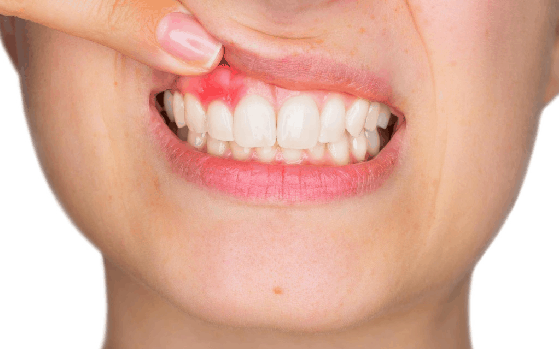Am I certain to lose my teeth in old age?
No. If you look after your teeth well, you will be able to keep your teeth for life. Gum diseases and cavities can be prevented whatever your age.
What specific problems do older people have?
Your gums may shrink back (recede) as you get older, and your teeth may become a little more sensitive as a result. Your dentist will be able to suggest you the best way to brush to keep any gum problems under control. They may also suggest a mouthwash to deal with the sensitivity.
You may find it harder to clean your teeth if you have problems moving your hands or arms, or if your eyesight is less than perfect. Again, you can get help and advice on the best aids to use
If you have lost some teeth, and have bridges or dentures, you may have particular cleaning needs and problems. Your dentist can help you with these.
Some people take medication due to this their mouth turns dry. Saliva helps to protect your teeth against decay, so if you have less saliva than usual ask your dentist for advice.
Or you can get special products, including artificial saliva, over the counter in most chemists.
What kind of problem should I expect to have with my gums?
Gum problems are induced by a build-up of bacteria called ’plaque’, which forms constantly on your teeth surface and gum. It is necessary to remove this plaque to avoid gum inflammation. If the plaque is not removed the overtime it will affect the bone under the gums. This bone supports the tooth roots when the root is affected your teeth may gradually become loose.
How do I know if I have gum disease?
Many people may not recognize they have gum disease because it is usually painless. Some common signs are:
- Bleeding gums when brushed
- loose teeth
- receding gums
- bad breath
- Not everyone has all these above-mentioned signs. You may find any one of them.
Can I still get tooth decay?
Yes. The plaque which causes gum inflammation also causes decay, especially when combined with sugary foods and drinks. There is a particular risk of decay when the gum has shrunk, as the‘neck‘ of the tooth is not protected by enamel.
How to prevent gum disease and tooth decay?
Thoroughly remove plaque from your teeth (and dentures, if you have them) at least twice a day:
- Use a toothpaste containing 1350 to 1500ppm (parts per million) of fluoride.
- There are also many special types of toothpaste on the market, including tartar-control and total—care toothpaste. Your dentist may recommend a higher- fluoride toothpaste if they think you need it.
- Clean in between your teeth every day with ’interdental’ brushes or floss — if you just brush, this cleans no more than about 60 percent of the surface of your teeth.
- Reduce the amount of how often you have food and drinks containing sugar.
- Visit your dentist and hygienist regularly, as often as they recommend.
How to clean my teeth properly?
You need a small-headed, medium-textured toothbrush and a fluoride toothpaste to help clean between your teeth, you can also use an interdental brush, tape, or floss. If you have arthritis you may find it hard to grip a toothbrush handle, but you can get handle adapters.
Electric toothbrushes are also helpful for people with limited movement. The handles are thicker and easier to hold, and the head does most of the work. There are many products to choose from, and your dentist or hygienist can help you decide which are best for you.
How to ensure if I have removed all the plaque?
A Plaque can be stained with food dye painted onto your teeth with a cotton bud, or with special ’disclosing tablets’ you can get from the dentist. This stain is harmless and will show any areas of your mouth which need cleaning more carefully. Look particularly where the teeth and gums meet. Brushing again will remove the stained plaque.
What if I have missing teeth?
There are three main ways to restore the missing teeth. The first is with a removable false tooth or teeth — a partial or full denture. The second option is with a fixed bridge; a bridge is usually used when there are fewer teeth to replace, or when the missing teeth are only on one side of the mouth.
The third way is a dental implant. This is a titanium metal rod that is placed into the jawbone. it is used to hold one or more false teeth. Usually, both the false teeth and their supporting rod are called an ‘implant’.
What causes mouth ulcers?
Ulcers can be caused by broken or crooked teeth, poorly fitting dentures, or sharp pieces of food. Once the cause is removed, ulcers should heal within 3 weeks. If you notice an ulcer that does not heal, see your dentist promptly. Many serious conditions, such as mouth cancer, can be treated. better if they are diagnosed early at a routine check-up.
Expert Opinion
Dr. Zita Antao dental director Sabka dentist says it’s important to keep your teeth healthy at any age. However, due to poor eyesight or other medication issues, old people need to take extra care of their teeth. So regular dental checkup is always recommended. And she further adds its important check your oral health even you wear a denture. A healthy mouth is key to overall health.





